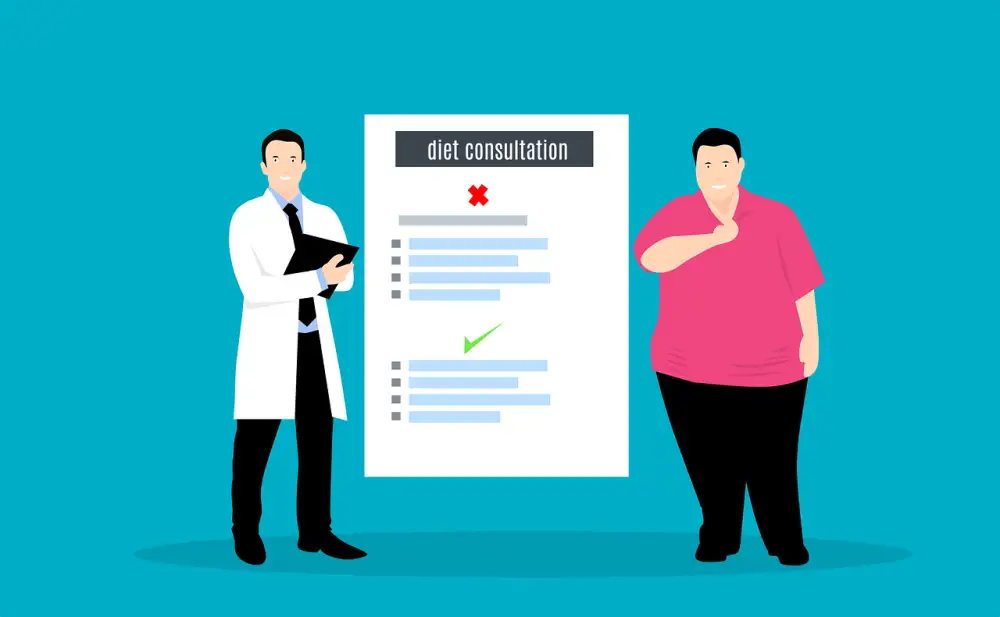Fuel Your Health with Our 1500 Calorie Meal Plan: Nourishing Recipes for Optimal Wellness

- Benefits of following a 1500 calorie meal plan
- Understanding calorie intake and weight management
- Building a balanced 1500 calorie meal plan
- Incorporating nutrient-dense foods into your 1500 calorie meal plan
- Sample 1500 calorie meal plan for a day
- Tips for successful implementation of a 1500 calorie meal plan
- Adjusting the 1500 calorie meal plan to individual needs
- Frequently asked questions about the 1500 calorie meal plan
Are you looking to fuel your health and nourish your body with a balanced diet? Look no further than our 1500 calorie meal plan. This carefully crafted plan provides you with a variety of nutrient-dense foods while keeping your calorie intake in check. Whether you're aiming to lose weight, maintain a healthy weight, or simply adopt a healthier lifestyle, our 1500 calorie meal plan is designed to support your goals. Get ready to embark on a culinary journey that will optimize your wellness and leave you feeling energized and satisfied.
Benefits of following a 1500 calorie meal plan
Following a 1500 calorie meal plan offers numerous benefits for optimal wellness. Firstly, it promotes weight loss by creating a calorie deficit, helping individuals shed excess pounds and maintain a healthy body weight. Secondly, it encourages portion control and mindful eating, leading to better food choices and improved digestion. Additionally, a 1500 calorie meal plan ensures balanced nutrition, providing essential nutrients while avoiding excessive intake of fats and sugars. Lastly, it can improve overall health by reducing the risk of chronic diseases such as diabetes, heart disease, and certain types of cancer.
Understanding calorie intake and weight management
Building a balanced 1500 calorie meal planBuilding a balanced 1500 calorie meal plan involves selecting a variety of nutrient-rich foods from different food groups. Aim to include lean proteins like chicken, fish, and tofu, along with whole grains such as quinoa and brown rice. Incorporate plenty of fruits and vegetables for essential vitamins and minerals. Don't forget healthy fats like avocados and nuts, which provide satiety and support brain health. By including a balance of these food groups, you can create a satisfying and nourishing 1500 calorie meal plan.
Incorporating nutrient-dense foods into your 1500 calorie meal plan
Incorporating nutrient-dense foods into your 1500 calorie meal plan is essential for optimal wellness. These foods provide a high amount of vitamins, minerals, and antioxidants while keeping the calorie count in check. Include plenty of fruits and vegetables, lean proteins like chicken or fish, whole grains, and healthy fats such as avocados or nuts. These nutrient-packed choices will not only nourish your body but also keep you feeling satisfied throughout the day.
Sample 1500 calorie meal plan for a day
Sample 1500 Calorie Meal Plan for a Day:
Breakfast:
- 1 cup of oatmeal topped with berries and a tablespoon of almond butter (300 calories)
- 1 boiled egg (70 calories)
- 1 cup of green tea (0 calories)
Snack:
- 1 medium-sized apple (95 calories)
- 10 almonds (70 calories)
Lunch:
- Grilled chicken breast salad with mixed greens, cherry tomatoes, cucumber, and balsamic vinaigrette dressing (350 calories)
- 1 small whole wheat pita bread (80 calories)
Snack:
- Greek yogurt with sliced strawberries and a drizzle of honey (150 calories)
Dinner:
- Baked salmon fillet with lemon and dill served with roasted vegetables (400 calories)
- 1/2 cup of quinoa (110 calories)
Snack:
- Carrot sticks with hummus dip (100 calories)
This sample meal plan provides a balance of protein, fiber, healthy fats, and essential nutrients within the calorie limit. Remember to adjust portion sizes according to your individual needs and preferences.
Tips for successful implementation of a 1500 calorie meal plan
Here are some tips to successfully implement a 1500 calorie meal plan:
1. Plan ahead: Take the time to plan your meals and snacks in advance. This will help you stay on track and avoid impulsive, unhealthy food choices.
2. Portion control: Be mindful of portion sizes to ensure you're not consuming more calories than intended. Use measuring cups or a food scale to accurately measure your portions.
3. Choose nutrient-dense foods: Opt for foods that are high in nutrients but low in calories, such as fruits, vegetables, lean proteins, whole grains, and legumes.
4. Stay hydrated: Drink plenty of water throughout the day to keep yourself hydrated and curb unnecessary snacking.
5. Listen to your body: Pay attention to your hunger and fullness cues. Eat when you're hungry and stop when you're satisfied, rather than eating out of boredom or emotions.
6. Include physical activity: Combine your meal plan with regular exercise to boost weight loss and improve overall health.
7. Seek support: Enlist the help of a friend or family member who can provide encouragement and accountability as you follow your meal plan.
By following these tips, you'll be well on your way to achieving success with your 1500 calorie meal plan!
Adjusting the 1500 calorie meal plan to individual needs
Adjusting the 1500 calorie meal plan to individual needs is crucial for long-term success. It's important to remember that everyone's nutritional requirements are unique. Factors such as age, gender, activity level, and overall health should be taken into consideration when customizing the plan. Consulting with a registered dietitian can help determine the right balance of macronutrients and portion sizes to meet specific goals. By tailoring the 1500 calorie meal plan to individual needs, it becomes a sustainable and effective tool for achieving optimal wellness.
Frequently asked questions about the 1500 calorie meal plan
1. Is the 1500 calorie meal plan suitable for everyone?
The 1500 calorie meal plan is generally suitable for adults who want to maintain or lose weight. However, it's important to consult with a healthcare professional before starting any new diet plan.
2. Can I customize the 1500 calorie meal plan to my dietary preferences?
Absolutely! The beauty of the 1500 calorie meal plan is its flexibility. You can customize it to accommodate your dietary preferences, allergies, or restrictions while still maintaining the overall calorie count.
3. Will I feel hungry on a 1500 calorie meal plan?
It's natural to experience some hunger initially as your body adjusts to a lower calorie intake. However, by focusing on nutrient-dense foods and spreading your meals throughout the day, you can minimize feelings of hunger and stay satisfied.
4. Can I exercise while following the 1500 calorie meal plan?
Yes, exercise is encouraged! Combining regular physical activity with a balanced 1500 calorie meal plan can enhance weight loss and improve overall health. Just make sure to listen to your body and adjust your energy intake accordingly.
5. How long should I follow the 1500 calorie meal plan?
The duration of following a 1500 calorie meal plan depends on individual goals and needs. It can be followed for as long as necessary to achieve desired weight loss or maintenance results. However, it's always advisable to reassess your nutritional needs periodically with professional guidance.
Remember, these are general guidelines and individual experiences may vary. It's important to consult with a healthcare professional or registered dietitian before making any significant changes to your diet or exercise routine
In conclusion, the 1500 calorie meal plan offers a practical and effective way to fuel your health and embrace a healthier lifestyle. By following this meal plan, you can achieve optimal wellness while still enjoying delicious and nourishing food. Remember, it's not just about counting calories, but also about making nutritious choices and building a balanced plate. So, start incorporating the 1500 calorie meal plan into your daily routine and watch as it transforms your overall well-being.
Published: 10. 12. 2023
Category: Health



